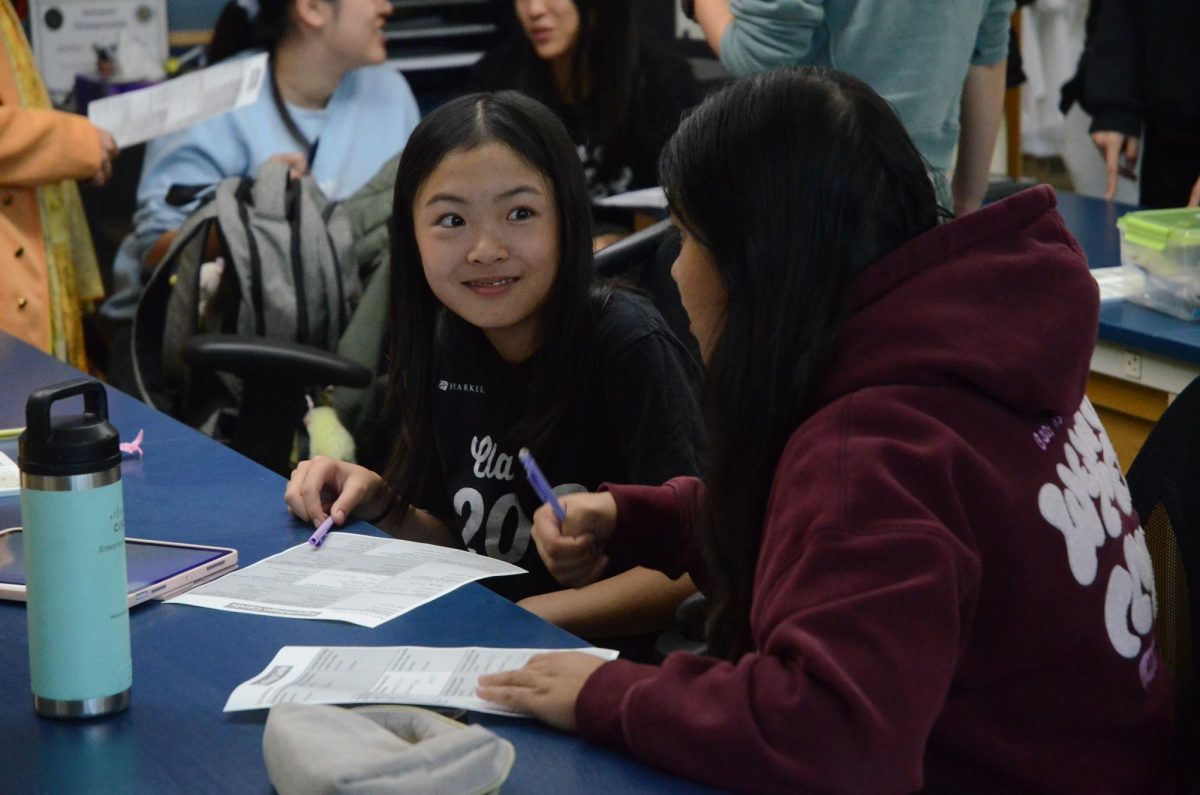New restrictions put in place globally as COVID-19 cases begin to rise again
As delta variant spreads, countries begin to place stricter restrictions on their citizens
Provided by Tessa Muhle
Hearts line the National COVID Memorial Wall in Westminster along the River Thames in the United Kingdom.
September 2, 2021
Due to the delta variant, a new global strain of COVID-19, countries around the world have begun to implement stricter rules and restrictions in hopes of preventing another large surge of cases. Currently, cases in the United States continue to rise, reaching up to 100,000 new cases a day. The Centers for Disease Control and Prevention (CDC) states that hospitals have seen almost four times the increase for those that are hospitalized due to COVID-19 in comparison to June.
The delta variant was first found in December 2020 and quickly became a larger concern in 2021 as cases began to rise notably in countries like India and the United Kingdom. Having been transmitted to 132 countries, the variant is continuing to adapt quickly and become more contagious. According to the United Nations, citizens who are vaccinated are less susceptible to more severe symptoms.
The delta variant is twice as contagious as any other variant of COVID-19. The CDC prompts citizens to continue to wear masks, get vaccinations and quarantine. The CDC also encourages people who have been within six feet of someone with COVID-19 to quarantine for two weeks and to self-isolate if infected with the virus.
“When I think about what the precautions are, the precautions are that we have to keep getting vaccinated,” upper school biology teacher Eric Johnson said. “Even if we think we are all vaccinated, or we think we know everything about it, we still have to be advocates in our communities as people who understand science.”
According to the CDC, continued neglectful behavior of the delta variant results in potential serious harm, though many are taking the new delta variant less critically than the original COVID-19 virus.
“In two different studies from Canada and Scotland, patients infected with the delta variant were more likely to be hospitalized than patients infected with Alpha or the original virus strains,” the CDC stated.
At its worst, the total daily case count in India reached 400,000 cases in May, and the current daily count is 58,103 as of Aug. 16, according to the World Health Organization. Although some speculate a third wave will hit India, India’s cases are currently at an all-time low since March 16. The country has vaccinated around 32.48% of its population.
Australia also began struggling with delta variant outbreaks with an average of 808 cases per week as of August 23. Government officials have urged citizens to stay home as much as possible and practice sanitary hygiene.
As Australia entered its ninth week of lockdown as of Aug. 22, the government has added two more weeks and reinstated a nightly curfew of 9 p.m. as cases continue to rise. However, according to Our World in Data, only 24% of Australians are fully vaccinated, and 19% are partially vaccinated.
Imogene Leneham (12) was able to travel to Australia to visit family right before the country went into lockdown.
“[My family] wasn’t having any struggles with COVID until just recently when they [had] gone into lockdown,” Imogene said. “Everybody’s starting to get the vaccine over there, but it is going rather slowly, just because it’s still severe but not as bad as it’s been [in the United States].”
England has experienced higher amounts of new cases daily as the new delta variant becomes more prevalent. Near the end of July, Britain reported the most deaths due to COVID-19 since March, reaching 92 on July 30.
“Walking down the street, even if it’s pretty busy, people aren’t really wearing masks at all,” Tessa Muhle (‘21), who recently traveled to England, said. “There haven’t really been any changes since the delta variant became a bigger issue either. Getting sick is not a major concern because my family has been pretty on top of things, like using hand sanitizer and wearing masks, and when we go out we try to stay away from people.”
When England lifted restrictions such as closed shops and curfews on July 19, cases suddenly reached a high on the week of July 17 with 38,950 in one day but then fell again to 23,313 within two weeks. As of Aug. 23, England has been reaching a weekly average of 26,827 cases. Although the case number improved, prime minister Boris Johnson continues to urge citizens to remain cautious, get their vaccinations, and not become prematurely confident on the pandemic outcomes.
“We have this historical evidence, specifically about the efficacy of the vaccines we have,” upper school biology teacher Johnson said. “For many many years, for many many different diseases, we have developed these vaccines where the evidence says: they exist to immunize us in the possibility that we were to be exposed. This is nothing different.”


















![“[Building nerf blasters] became this outlet of creativity for me that hasn't been matched by anything else. The process [of] making a build complete to your desire is such a painstakingly difficult process, but I've had to learn from [the skills needed from] soldering to proper painting. There's so many different options for everything, if you think about it, it exists. The best part is [that] if it doesn't exist, you can build it yourself," Ishaan Parate said.](https://harkeraquila.com/wp-content/uploads/2022/08/DSC_8149-900x604.jpg)




![“When I came into high school, I was ready to be a follower. But DECA was a game changer for me. It helped me overcome my fear of public speaking, and it's played such a major role in who I've become today. To be able to successfully lead a chapter of 150 students, an officer team and be one of the upperclassmen I once really admired is something I'm [really] proud of,” Anvitha Tummala ('21) said.](https://harkeraquila.com/wp-content/uploads/2021/07/Screen-Shot-2021-07-25-at-9.50.05-AM-900x594.png)







![“I think getting up in the morning and having a sense of purpose [is exciting]. I think without a certain amount of drive, life is kind of obsolete and mundane, and I think having that every single day is what makes each day unique and kind of makes life exciting,” Neymika Jain (12) said.](https://harkeraquila.com/wp-content/uploads/2017/06/Screen-Shot-2017-06-03-at-4.54.16-PM.png)








![“My slogan is ‘slow feet, don’t eat, and I’m hungry.’ You need to run fast to get where you are–you aren't going to get those championships if you aren't fast,” Angel Cervantes (12) said. “I want to do well in school on my tests and in track and win championships for my team. I live by that, [and] I can do that anywhere: in the classroom or on the field.”](https://harkeraquila.com/wp-content/uploads/2018/06/DSC5146-900x601.jpg)
![“[Volleyball has] taught me how to fall correctly, and another thing it taught is that you don’t have to be the best at something to be good at it. If you just hit the ball in a smart way, then it still scores points and you’re good at it. You could be a background player and still make a much bigger impact on the team than you would think,” Anya Gert (’20) said.](https://harkeraquila.com/wp-content/uploads/2020/06/AnnaGert_JinTuan_HoHPhotoEdited-600x900.jpeg)

![“I'm not nearly there yet, but [my confidence has] definitely been getting better since I was pretty shy and timid coming into Harker my freshman year. I know that there's a lot of people that are really confident in what they do, and I really admire them. Everyone's so driven and that has really pushed me to kind of try to find my own place in high school and be more confident,” Alyssa Huang (’20) said.](https://harkeraquila.com/wp-content/uploads/2020/06/AlyssaHuang_EmilyChen_HoHPhoto-900x749.jpeg)












